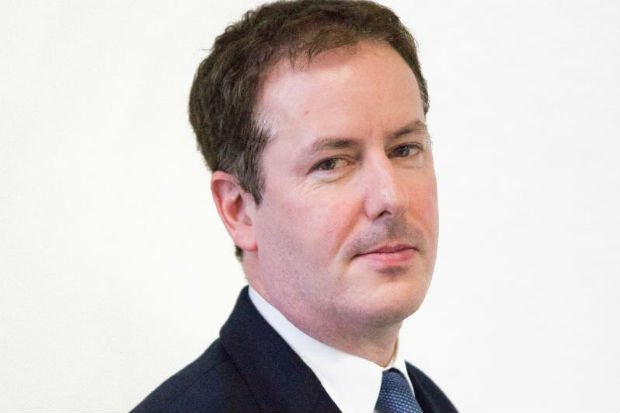Welcome back to the Race Champion Blog. With this week having seen the first annual Stephen Lawrence Day, where people all over the country think about attitudes to race and treating everyone with fairness and respect, it seems timely to continue this series of posts. I aim to introduce inspirational people who are working hard to make a positive difference to our Civil Service and to the wider public sector.
In February, I sat down to have a conversation with Sharon White, former Second Permanent Secretary of HM Treasury and now CEO of Ofcom. She told me about her career pathway and her experiences along the way. I know that many people who attended the event found Sharon’s journey fascinating. I certainly did. You can watch the full interview here.
Dermot Nolan, CEO of Ofgem, was at the event and has written a post on what Ofgem is doing to increase diversity and create a culture of inclusion. Ofgem has set itself challenging diversity targets and has taken extra measures to ensure that ethnic minority women are equally represented at each level. They are working hard to achieve these ambitions.
And continuing the theme of inspirational people: don’t forget that we are approaching the end of the Civil Service Diversity & Inclusion Awards nomination season. If you have worked hard to make the Civil Service a more inclusive place to work, or if you know a colleague who has, please get your nominations in by 3 May.
Richard Heaton, Civil Service Race Champion
Creating a culture of inclusion
Dermot Nolan, CEO, Ofgem

Over the past few months, I have been listening and learning more about the business case for diversity and inclusion. At Ofgem, we have a number of staff-led networks, some old and some more recently established, which are helping us to take a more active lead in our approach to D&I. I’ve also been out meeting people in our local and wider Civil Service community who champion this agenda across government.
The Cabinet Office Ethnic Diversity Programme recently hosted an event with Richard Heaton (Permanent Secretary for the Ministry of Justice) in conversation with Sharon White (CEO at Ofcom). Sharon spoke about her personal experience, touching on unconscious bias, discrimination and the progression of women within the workplace.
Sharon also spoke about the need for sustained leadership to tackle underrepresentation of certain groups, and it was refreshing to hear how, by having a firm and focused steer from the most senior leader, Ofcom started to learn to become more diverse and inclusive.
All in all, I found the event very helpful, as it gave me new insight into how other regulators address issues around diversity and inclusion. I realised that even though progress has been made on this agenda, it is slow, and there is still more work to do across the Civil Service to ensure it achieves its ambition of becoming the UK’s most inclusive employer by 2020. Ofgem will play its part in this.
At Ofgem, we think it’s hugely important to put more effort and resources into becoming a more diverse organisation. Not just because it’s the right thing to do, but also because we think it will help us to make better decisions. We will respond to the different experiences of different people from different backgrounds, to produce more informed decisions.
We will be launching an organisational Diversity and Inclusion Strategy to ensure we hold ourselves to account for making progress on this important issue. The strategy will set out our organisational objectives in relation to diversity:
- building a diverse and inclusive workforce that better reflects the UK population we serve
- making our workplace culture a more inclusive one, where everyone can be their true selves and flourish
- working with, and influencing, other organisations across the energy sector to improve diversity and inclusion
To help us monitor our progress in becoming representative of the consumers we serve, our strategy includes two important aspirational targets. By 2025, Ofgem aspires to achieve 50% female representation across all its pay grades, from the most junior roles all the way up to our Senior Civil Servants. Over the same time period, we aspire to achieving a minimum of 18% minority ethnic representation across all Ofgem pay grades, with at least 9% at each grade being women from an ethnic minority. This should render our gender and ethnicity pay gaps negligible.
Of course, targets are not in themselves enough, but they symbolise our commitment and we will ensure we hold ourselves to account for making progress on this important issue. Further action will be taken if our pay gaps do not start to decline as our gender and ethnic diversity increases.
We won’t just stop at gender and ethnic diversity. We want an organisation that reflects the full diversity of the consumers we serve, including the LGBT+ community, people caring for and living with disabilities (indeed, people with any caring responsibilities), as well as people from all socio-economic backgrounds. This list is not exhaustive. While we have not set ourselves aspirational targets for the representation of all these groups of consumers, we commit to working with our staff to improve the data we hold on their characteristics, so that meaningful targets can be set, where necessary, to raise Ofgem’s diversity in all respects.
Ofgem’s diversity champion, Rob Salter-Church, and diversity groups within Ofgem, are raising awareness of these issues and starting to change the culture. However, we cannot do this alone. 'Inclusion starts with I': we all have a part to play in creating this inclusive culture.
I want Ofgem to be a leader in promoting and achieving a diverse workforce across the Civil Service and the energy sector we regulate. I look forward to all of us working towards being reflective of the public that we serve.
